Are Essential Oils Safe for Skin
Essential oils have gained popularity for their various benefits, especially when it comes to skincare. From moisturizing properties to anti-inflammatory effects, these oils offer a natural way to enhance your skin health. Using essential oils on your skin requires caution and proper knowledge.
We will explore the benefits of essential oils for skin, safety tips for using them, and the best aromatherapy oils for skin to incorporate into your skincare routine for glowing and healthy skin.
Key Takeaways:
What Are Essential Oils?
Essential oils are natural plant extracts that are derived from various parts of plants such as flowers, leaves, stems, and roots through processes like distillation or cold pressing. These oils are highly concentrated and contain the essence, aroma, and beneficial properties of the plant they are extracted from.
During distillation, steam passes through the plant material, carrying the volatile compounds which are then condensed back into a liquid form, resulting in essential oil separation.
Cold pressing, on the other hand, involves mechanical pressure to extract oils, mainly from citrus peels.
Essential oils can vary in concentration levels, with some being extremely potent, requiring only a drop or two, while others can be diluted in carrier oils for safe application. Are essential oils for plants safe?
Plants like lavender, eucalyptus, peppermint, and tea tree are common sources of essential oils, each offering distinct therapeutic benefits.
How Are Essential Oils Used?
Essential oils can be used in various ways, including aromatherapy, topical application, and even ingestion, although the latter should be done under the guidance of a healthcare professional due to safety concerns. Topical application is a common method of using essential oils for skincare purposes as they can be absorbed through the skin and provide localized benefits.
In terms of aromatherapy, essential oils are often diffused into the air using devices like diffusers. This method allows the aromatic compounds in the oils to create a calming or invigorating atmosphere, depending on the oils used. Some essential oils, like lavender or chamomile, are known for their relaxing properties, making them popular choices for stress relief.
In skincare, essential oils are frequently added to carrier oils or lotions to create customized blends for different skin types. Oils like tea tree and frankincense are renowned for their antibacterial and anti-inflammatory properties, making them beneficial for treating acne-prone skin or soothing irritation.
What Are the Benefits of Using Essential Oils on Skin?
Utilizing essential oils on the skin can offer a multitude of benefits such as moisturizing properties, anti-inflammatory effects, antimicrobial properties, and anti-aging benefits. These oils can help improve skin health, address specific skin concerns, and enhance overall skin appearance and texture.
Essential oils with moisturizing properties, like jojoba oil and lavender oil, can deeply hydrate the skin and combat dryness, leaving it soft and supple.
Anti-inflammatory essential oils, such as chamomile oil and rosemary oil, are effective in soothing skin irritations, reducing redness, and calming inflamed skin conditions.
On the other hand, essential oils with antimicrobial properties, such as tea tree oil and eucalyptus oil, can help combat acne-causing bacteria and prevent infections.
Anti-aging essential oils like frankincense oil and neroli oil are rich in antioxidants that protect the skin from free radical damage, promoting a youthful and radiant complexion.
Moisturizing Properties
Essential oils like Jojoba oil and Coconut oil are known for their excellent moisturizing properties when applied to the skin. These oils can help hydrate and soften the skin, creating a protective barrier to prevent moisture loss.
Jojoba oil, often referred to as the ‘gold of desert’, mimics the skin’s natural oils, making it easily absorbed without clogging pores, ideal for all skin types. Its emollient properties make it effective in retaining moisture, combating dryness, and soothing irritated skin.
Coconut oil, rich in fatty acids, possesses antimicrobial properties and acts as a gentle moisturizer. Its lightweight texture deeply penetrates the skin, promoting hydration and leaving the skin feeling smooth and supple.
Anti-inflammatory Effects
Essential oils such as Lavender essential oil and Rosemary oil possess anti-inflammatory properties that can help soothe and calm irritated skin. These oils may aid in reducing redness, swelling, and discomfort associated with inflammatory skin conditions.
When applied topically, Lavender oil is known for its ability to promote relaxation and ease tension in addition to its anti-inflammatory effects. Its gentle nature makes it suitable for all skin types, including sensitive skin. On the other hand, Rosemary oil is praised for its stimulating and invigorating properties along with its anti-inflammatory benefits.
Both oils can be beneficial for conditions such as acne, eczema, and psoriasis, as they help to calm the skin and reduce irritation. Their antioxidant properties further protect the skin from environmental stressors, promoting overall skin health.
Antimicrobial Properties
Essential oils like Tea Tree oil and Lemongrass have potent antimicrobial properties that can help combat acne-causing bacteria and other harmful microorganisms on the skin. These oils are beneficial for maintaining skin cleanliness and preventing infections.
Tea Tree oil, derived from the leaves of the Melaleuca alternifolia plant, contains compounds like terpinen-4-ol that exhibit strong antibacterial and antifungal properties. When applied topically, it can help reduce inflammation and treat acne effectively.
Lemongrass oil, extracted from Cymbopogon citratus, is known for its refreshing citrus scent and its antibacterial and astringent qualities. It aids in controlling oil production, unclogging pores, and toning the skin.
Anti-aging Benefits
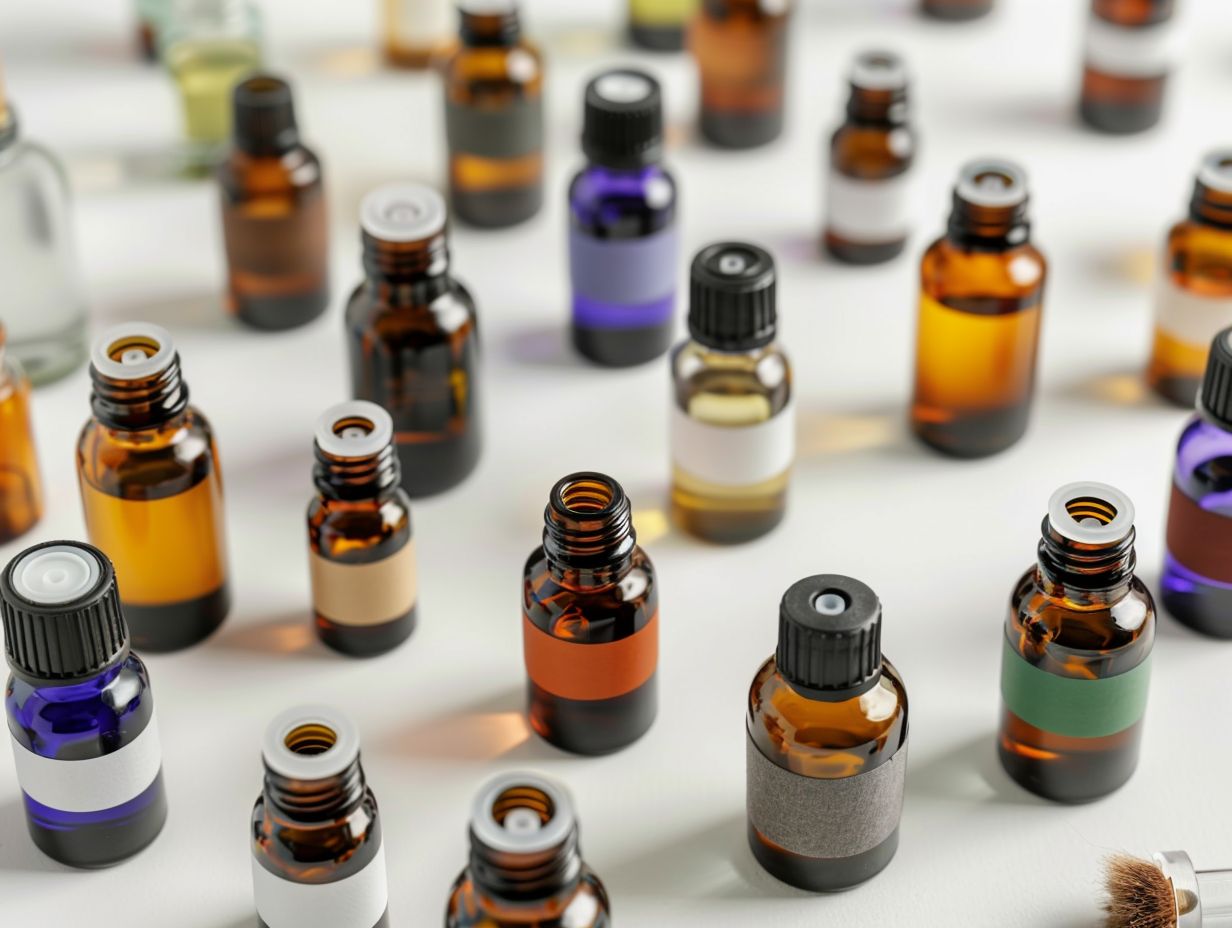
Certain essential oils like Neroli and Patchouli are renowned for their anti-aging properties due to their ability to promote skin elasticity, reduce fine lines, and improve overall skin tone. These oils can be beneficial additions to anti-aging skincare routines.
Neroli oil is particularly prized for its rejuvenating qualities, known to stimulate skin cell regeneration and enhance skin firmness. Its rich antioxidant content helps combat free radicals, which are major contributors to premature aging.
On the other hand, Patchouli oil boasts powerful anti-inflammatory properties, aiding in reducing puffiness and promoting a smoother complexion. When these oils are used in combination, they create a potent blend that addresses multiple signs of aging, from wrinkles to loss of skin firmness, leaving the skin looking radiant and youthful.
Are Essential Oils Safe for Skin?
While essential oils offer numerous benefits for the skin, it is crucial to use them safely to avoid potential irritation or adverse reactions. Consulting with a dermatologist before incorporating essential oils into your skincare routine is advisable, especially for individuals with sensitive skin.
Performing a patch test before widespread application is essential to check for any allergic reactions. Diluting essential oils with a carrier oil is another important safety precaution to prevent skin sensitivities. It is vital to be aware of photosensitivity concerns, especially with citrus oils, which can make the skin more sensitive to sunlight and lead to burns. Understanding the potential risks of using essential oils on the skin, such as the risk of sensitization or irritation, is key to ensuring a safe and effective skincare regimen.
Dilution is Key
Proper dilution of essential oils with carrier oils like Almond oil or Jojoba oil is essential to prevent skin irritation and ensure safe application. Dilution ratios should adhere to recommended guidelines to minimize the risk of adverse reactions.
Can essential oils stain skin Carrier oils play a crucial role in reducing the concentration of potent essential oils, making them suitable for topical use. Almond oil and Jojoba oil are popular choices due to their skin-nourishing properties and mild scent. When diluting, it is important to match the right carrier oil with the essential oil to maximize benefits.
Following safe dilution practices not only protects the skin but also enhances the effectiveness of the essential oils. Successful dilution involves understanding the potency of the essential oil and adjusting the ratio accordingly for various applications.
Patch Testing
Conducting a patch test before widespread application of essential oils is crucial to identify any potential skin irritation or allergic reactions.
By performing a patch test, one can avoid the risk of adverse skin reactions that may occur due to individual sensitivities to specific essential oils. The procedure involves diluting the oil with a carrier oil, such as coconut or jojoba oil, to reduce its potency. Applying a small amount of this diluted mixture to a small patch of skin, typically on the inner forearm or behind the ear, allows for close observation over the next 24 hours for any signs of redness, swelling, itching, or burning sensations.
Avoiding Sun Exposure
Citrus oils like Bergamot, Lemon, and Lime can increase skin photosensitivity, making it crucial to avoid direct sun exposure after topical application. Such oils should be used cautiously, especially before prolonged sun exposure to prevent skin damage.
Essential oils derived from citrus fruits contain compounds that can increase the skin’s sensitivity to UV radiation. This heightened photosensitivity raises the risk of sunburn, skin discoloration, and other sun-related skin issues. When using citrus essential oils, it’s important to be extra mindful of sun exposure. Even small amounts of these oils can trigger reactions when exposed to sunlight.
Potential Irritation and Allergic Reactions
Individuals with sensitive skin may experience potential irritation or allergic reactions when using essential oils. It is essential to be aware of common triggers and symptoms of adverse reactions to promptly address any skin discomfort.
Some common symptoms of skin irritation from essential oils include redness, itching, burning sensation, or even rash formation. Preventive measures such as diluting essential oils with carrier oils, conducting a patch test before full application, and avoiding sun exposure after use can help minimize the risk of adverse reactions.
Monitoring skin responses is crucial, as sensitive individuals may develop reactions to even small amounts of essential oils. Seeking advice from a dermatologist or skincare professional can provide personalized recommendations for individuals with recurring skin sensitivities.
What Are the Best Essential Oils for Skin?
In terms of skincare, certain essential oils stand out for their exceptional benefits. Lavender Oil, Tea Tree Oil, Rosehip Oil, and Chamomile Oil are among the top choices for skincare due to their specific properties that cater to various skin concerns.
Lavender Oil, known for its calming and soothing properties, is perfect for sensitive skin and can help reduce redness and irritation.
Tea Tree Oil, with its powerful antibacterial and anti-inflammatory effects, is great for acne-prone skin as it helps combat breakouts and blemishes.
Rosehip Oil, packed with antioxidants and essential fatty acids, is excellent for hydrating and promoting a radiant complexion.
Chamomile Oil, renowned for its anti-inflammatory and healing benefits, is ideal for soothing conditions like eczema and dermatitis.
Lavender Oil
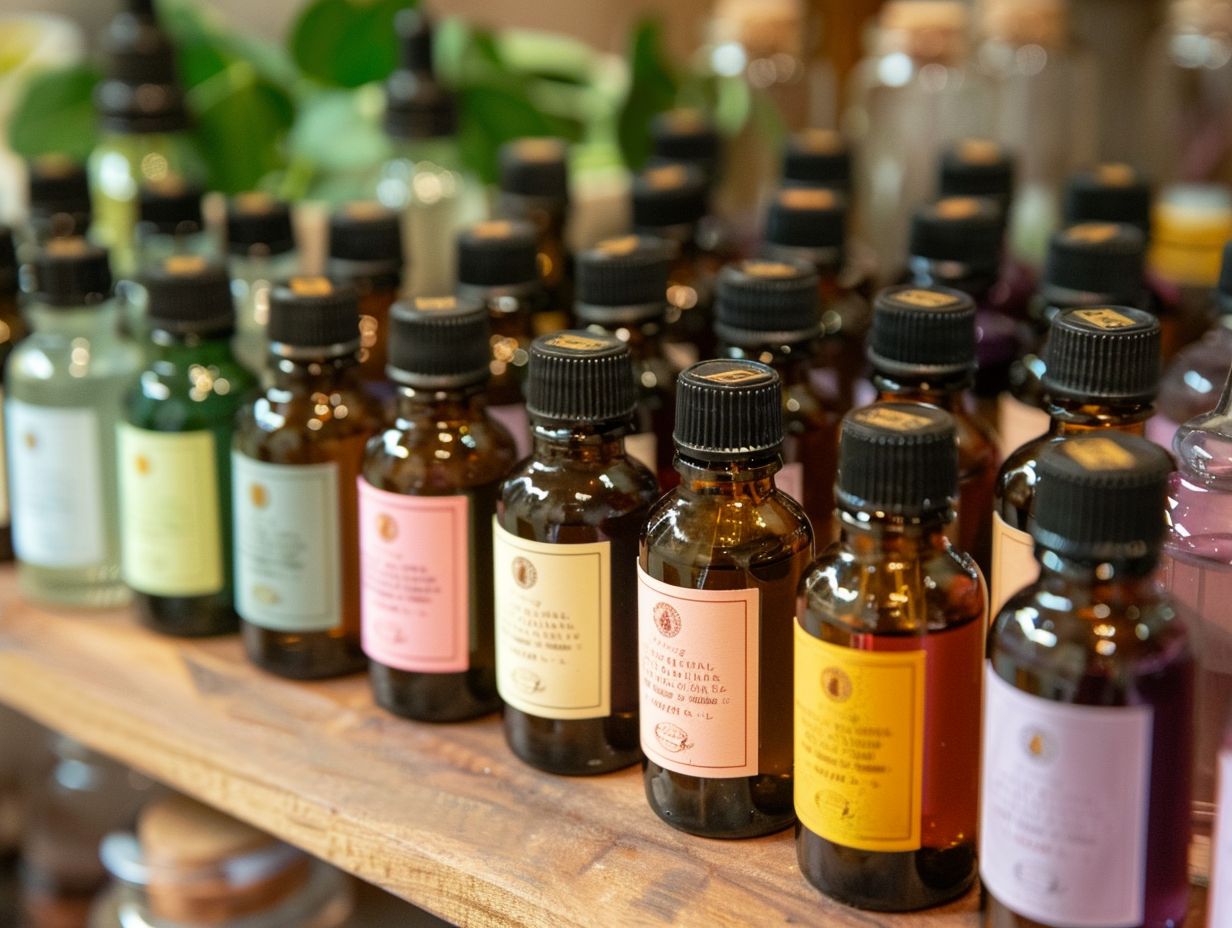
Lavender essential oil is a versatile skincare remedy known for its calming aroma and skin-soothing properties. It can help with conditions like acne, eczema, and dry skin, making it a popular choice for a wide range of skin types.
One of the key benefits of lavender essential oil in skincare is its ability to promote relaxation and reduce stress, thanks to its gentle and soothing scent. Plus its aromatic properties, the oil has anti-inflammatory and antiseptic qualities, which can aid in healing and reducing redness in the skin. This makes it particularly useful for calming irritated skin and promoting a healthy complexion.
Tea Tree Oil
Tea Tree oil is renowned for its antimicrobial and anti-inflammatory properties, making it a potent solution for acne-prone skin. This essential oil can help reduce acne breakouts, calm inflammation, and promote clearer skin with regular use.
Its antibacterial properties target the bacteria that cause acne, while its anti-inflammatory nature helps in soothing redness and irritation. Tea Tree oil is gentle on the skin, making it suitable for various skin concerns, such as oily skin, blemishes, and even mild cases of eczema.
Many people also find that Tea Tree oil helps in reducing the appearance of acne scars over time, thanks to its skin-renewing qualities. This natural ingredient can be incorporated into a skincare routine by mixing a few drops with a carrier oil or adding it to existing skincare products like cleansers or moisturizers.
Rosehip Oil
Rosehip oil is rich in vitamins and antioxidants, making it a potent anti-aging solution for improving skin texture, reducing scars, and enhancing overall skin radiance. This oil is beneficial for nourishing and rejuvenating the skin naturally.
The vitamin-rich composition of Rosehip oil, particularly high in vitamin C, promotes collagen production, helping to firm and plump the skin, diminishing fine lines and wrinkles. Its antioxidant content protects the skin from free radical damage, reducing signs of aging and maintaining a youthful complexion. Rosehip oil is known for its ability to improve skin tone and elasticity, giving a smoother and more even appearance.
Chamomile Oil
Chamomile oil is known for its soothing and anti-inflammatory properties, making it an ideal choice for sensitive or irritated skin. This essential oil can help calm skin redness, reduce irritation, and promote skin healing effectively.
Rich in antioxidants, chamomile oil aids in fighting free radicals that can contribute to skin damage and premature aging. Its gentle nature makes it suitable for all skin types, especially those prone to redness or sensitivity.
When used in skincare products, chamomile oil not only provides relief to inflamed skin but also helps balance moisture levels and restore the skin’s natural barrier function. Its soothing aroma adds a touch of relaxation, making it a popular ingredient in products designed for self-care rituals.
How to Use Essential Oils Safely on Skin?
To use essential oils safely on the skin, it is crucial to dilute them with carrier oils, follow recommended usage guidelines, avoid sensitive areas like eyes and mucous membranes, and seek advice from a healthcare professional or dermatologist before incorporating them into your skincare routine.
When diluting essential oils, a common practice is to mix a few drops of the essential oil with a larger quantity of carrier oil, such as coconut, jojoba, or almond oil, to reduce the concentration and potential risk of skin irritation.
It is important to be mindful of the recommended usage guidelines as some essential oils lip safe may be photosensitive and should not be applied before sun exposure to prevent skin damage.
Target areas like the wrists, temples, and soles of the feet are commonly suggested for applying diluted essential oils due to their absorption properties.
For individuals with specific skincare concerns or skin conditions, consulting with a professional is essential to avoid adverse reactions or exacerbating existing issues.
Dilute with a Carrier Oil
When using essential oils on the skin, always dilute them with carrier oils like Coconut oil or Jojoba oil to reduce the risk of skin irritation.
Carrier oils play a crucial role in skincare routine as they help in carrying the essential oils onto the skin without causing any adverse reactions. Apart from Coconut oil and Jojoba oil, other popular carrier oils include Sweet Almond oil, Argan oil, and Olive oil. The recommended ratio for dilution is usually 2-3 drops of essential oil per teaspoon of carrier oil for facial application and 6-12 drops per ounce for body application.
Diluting essential oils not only reduces the chances of skin irritation but also helps in preventing sensitivity and allergic reactions. It can aid in better absorption of the essential oils by ensuring they are evenly spread, making the application more effective.
Follow Recommended Usage Guidelines
Adhering to recommended usage guidelines for essential oils is essential to prevent skin reactions and ensure optimal benefits.
Each oil has specific instructions regarding application frequency, concentration, and dilution, which should be followed carefully for safe and effective results. For application methods, it is common to use essential oils in diluted form, often mixed with essential oils for babies, before applying to the skin. This helps to reduce the risk of irritation and sensitization. Concentrations vary depending on the oil, with some needing higher dilution ratios than others.
When using essential oils on the skin, it is crucial to conduct a patch test before applying them more widely. This involves diluting a small amount of the oil and applying it to a small area of skin to check for any adverse reactions. Safety precautions such as avoiding sun exposure after certain citrus oil applications and ensuring proper ventilation during use are also important to consider.
Avoid Sensitive Areas
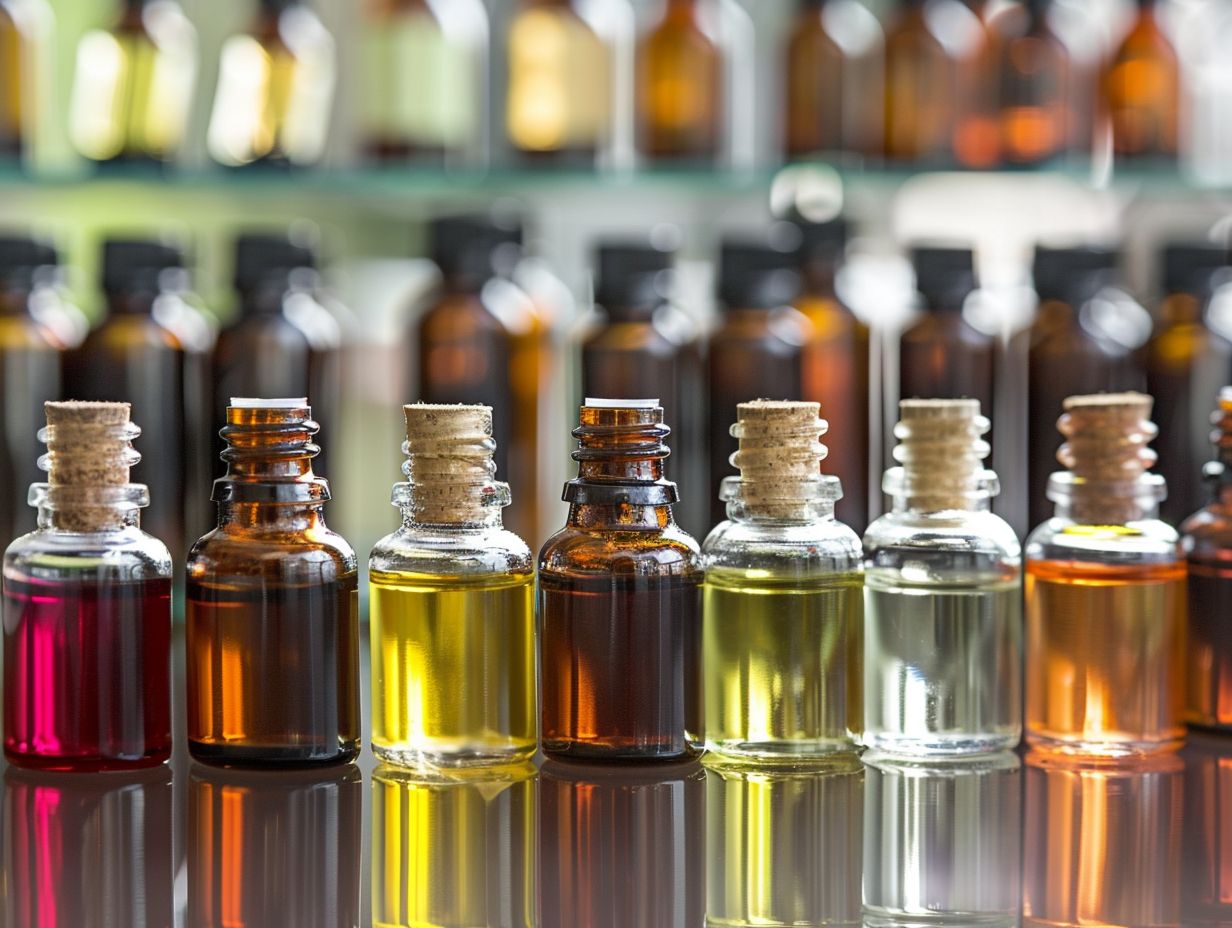
Opting for targeted application on non-sensitive regions of the body is essential to maintain skin safety and ensure a positive experience while using essential oils. By focusing on areas like the wrists, soles of the feet, or forearms, individuals can enjoy the benefits of essential oils without the risk of skin sensitivities or discomfort.
It’s crucial to always dilute essential oils properly with a carrier oil before applying them to the skin to reduce the likelihood of adverse reactions. This practice not only enhances the efficacy of the essential oils but also minimizes the chances of skin irritation, making the experience more pleasant and beneficial.
Consult with a Healthcare Professional
For personalized skincare advice and safety recommendations regarding essential oils, it is advisable to consult with a dermatologist or healthcare professional.
These experts have the knowledge and experience to evaluate your skin’s unique characteristics, whether it’s sensitive, oily, acne-prone, or mature, and suggest appropriate oils that can address your specific concerns. By seeking professional guidance, you can ensure that the essential oils you use are compatible with your skin type and won’t cause any adverse reactions. For more information on essential oils for dogs skin, click here.
Frequently Asked Questions
Are Essential Oils Safe for Skin?
Yes, essential oils are generally safe for skin when used properly and in appropriate dilution.
Can essential oils cause skin irritation?
Yes, some essential oils can cause skin irritation if not properly diluted or if used in high concentrations.
How should I dilute essential oils for skin use?
The recommended dilution for skin use is 1% or less, which is approximately 6 drops of essential oil per 1 ounce of carrier oil.
Are there any essential oils that are not safe for skin?
Yes, there are some essential oils that are not recommended for direct skin application, such as cinnamon, clove, and oregano.
Can essential oils be used on sensitive skin?
Yes, but it is important to do a patch test before using any essential oils on sensitive skin to ensure there is no negative reaction.
Are there any precautions I should take when using essential oils on skin?
Yes, it is important to always use essential oils in recommended dilutions, avoid using undiluted oils on skin, and stop use immediately if any irritation occurs.

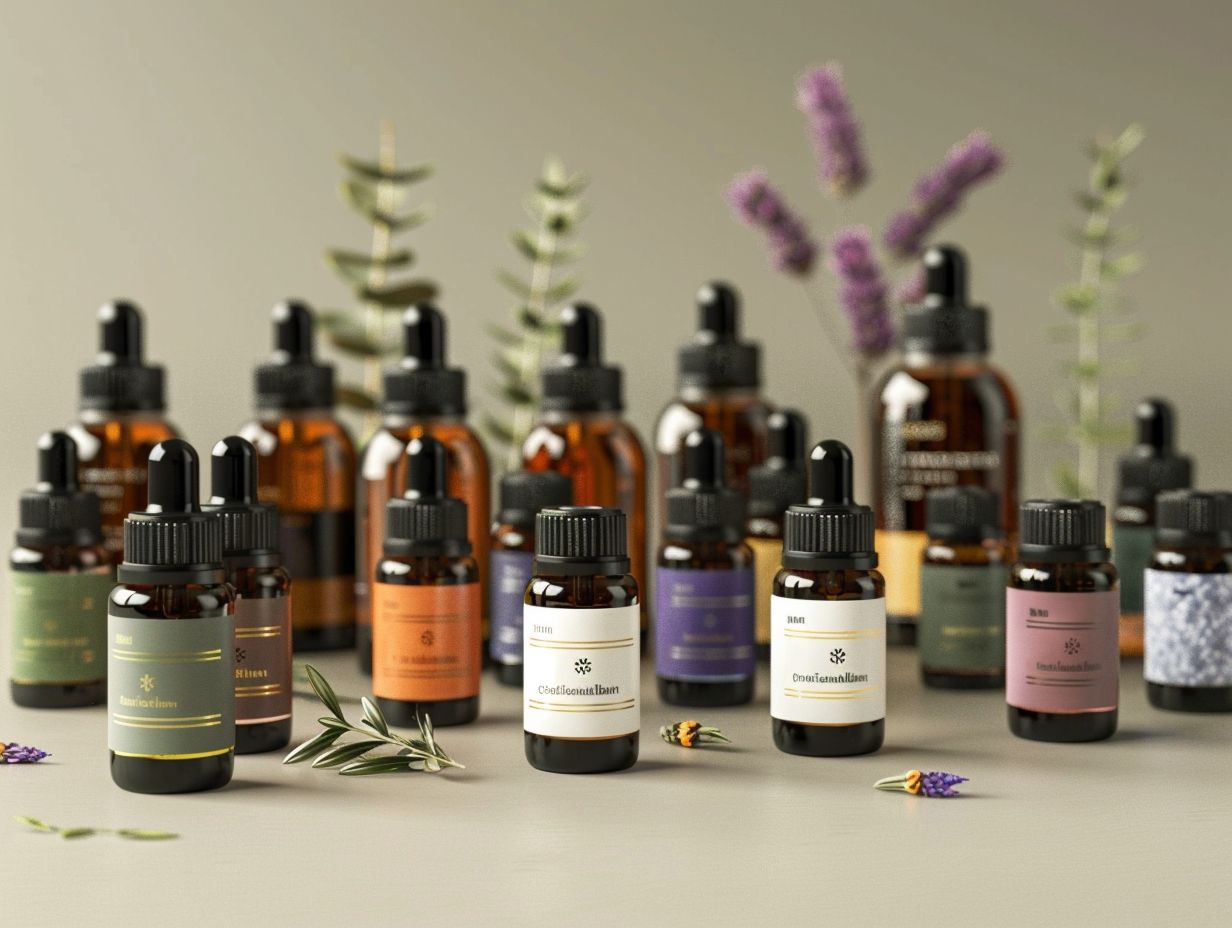
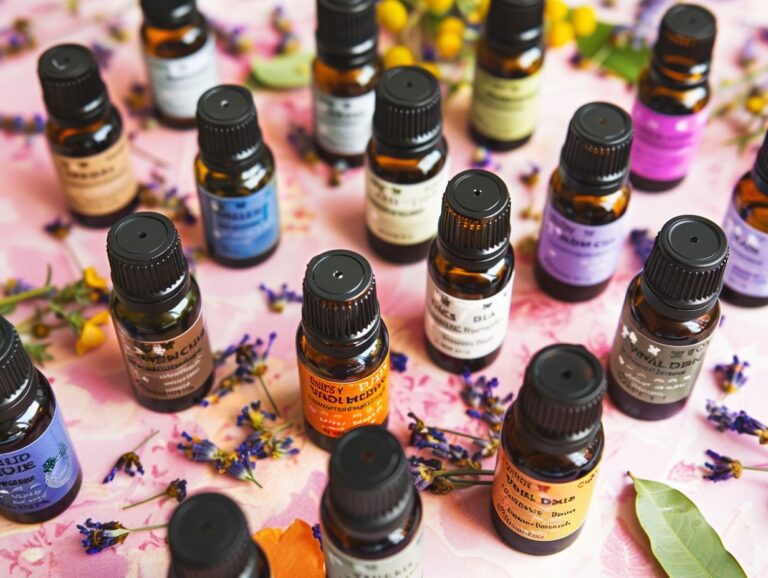

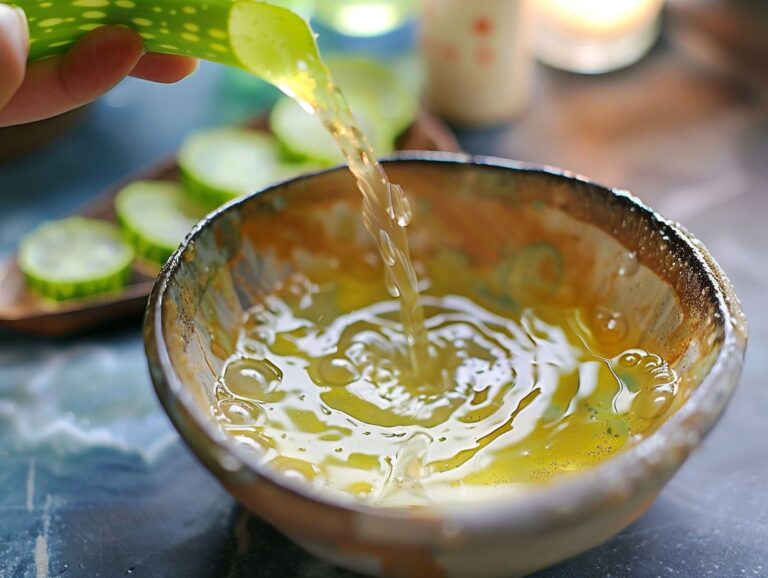


17 Comments